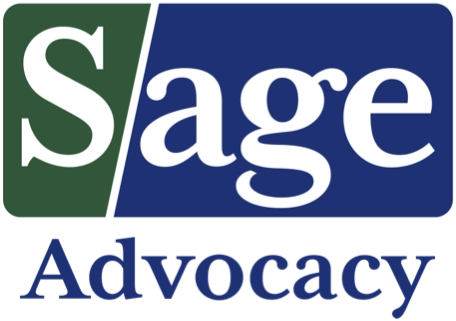Current approach to commissioning services questioned at seminar on ageing
Chair of Sage Advocacy tells national seminar on ageing that “we must move beyond policy making to the construction of a new social institution – a ‘GAA for Care’ ”
A new ‘Trust’ style social enterprise described as – ‘a GAA for Care’ – should be developed across Ireland to address the social, care and community needs of an aging population.
Delivering the keynote address at the high-profile Forty Shades of Grey seminar in Dublin today Sage Advocacy Chair Mark Mellett said: “To meet the social and economic challenges faced by an ageing Ireland we need a new organisational form, which has credibility and State support – which guides rather than is led by the private sector – and which will harness the goodwill in communities and families.”
“We need a new institutional framework for supports and services for older people. This would be a not-for-profit enterprise embedded in communities to enable demonstrator developments and create pathways for others. We envision this as a ‘GAA for Care’.
Mr Mellett was among speakers at the event on Responding to the Challenges and Opportunities of an Ageing Society and Economy, which was attended by invited guests including age sector leaders, academics, HSE chiefs, medics, current and former politicians including iar-Thaoisigh Brian Cowen and Enda Kenny, and public figures including Annmarie O’Connor.
The seminar was set up to explore perspectives on an ageing Ireland across themes of Society (Dr Jerry Cowley as speaker), Economy (Cliff Taylor), Law (Patricia Rickard-Clarke), Housing (Tom Grey) and Politics (Róisín Shortall TD, Chair Sláintecare Committee).
With thematic discussions moderated by Dr Ann Coyle; and a focused session for facilitated discussion groups to gather up ‘Messages for the Commission on Care’ – the feedback from the event will be prepared for formal submission to the Professor Alan Barrett-chaired independent Commission that will shortly be established by Government.
Mr Mellett said: “Analysis of data from the Irish Longitudinal Study on Ageing (TILDA) raised questions about whether services for older people, as currently funded by the HSE, adequately reflect all, or even the most important, risk and protective factors affecting personal well-being.
Quoting a 2014 report by Dr Kieran McKeown, Individual Needs – Collective Responses: The Potential of Social Enterprise to Provide Supports & Services for Older People, Mr Mellett told attendees: ”this report said that ‘while hospital and residential services to meet the needs of older people are important, they may have assumed disproportionate importance relative to the social connections which sustain the well-being of older people in their home environment. This, in turn, invites reflection on the question of whether the right services are being commissioned in all cases, and whether there is need to create a more innovative stream of commissioning’.”
Pointing to the steps needed to move towards a new institutional vehicle to provide the needed supports and services for older people he outlined:
- The establishment of a national Trust as a social enterprise to drive the innovation required and the desired outcome in areas chosen to ensure the greatest potential for the development of a critical mass of interrelated impacts.
- The development of the Trust based on a franchise model so that clusters of organisations and / or initiatives in a given area could work towards being recognised by and fully supported through the Trust regarding research, quality standards and the development of catchment area-based social business plans focused around outcomes.
- Endowing the Trust with a substantial multi-annual innovation fund which would be used to support a Call for Expressions of Interest in the development of demonstrator projects from consortia, which could include Regional Health Areas, local authorities, housing associations, significant private sector development entities, groups of nursing homes and home care providers and community development organisations.
Referring to the work of Sage Advocacy in preparing for the Commission on Care for Older People Vice Admiral Mellett pointed to its well-received report of 2020 Choice Matters, and to its recent Red C poll, which showed that around four in five people:
- Believe home care and nursing home care now is overly concentrated in the hands of private providers
- Agree that the Government should provide an innovation fund to promote small-scale household models of congregated care as an alternative to larger nursing homes
- Support the idea of a national not for profit organisation to be set up as a ‘GAA for Care’ to help meet the challenges of an ageing society.
Mr Mellett continued: “Having established widespread concern about the level of private control of care services, evidence of a desire for more personalised services and that about four in five people support the idea of a ‘GAA for Care’ we can, with good reason, surmise that new approaches would receive support from the public.
“It is my view that it is time to move from ‘Fair Deal’ to a ‘New Deal’.”
Stating that a blend of social and economic approaches is critical, Mr Mellett said: “We must see the ageing of our society as presenting challenges but also opportunities for our society and for our economy. One person’s grey hair is another person’s work as a barber or hairdresser. One person’s inability to cut the grass because of arthritis is another person’s work as a gardener. Two people’s desire to retire and live in a beautiful part of Mayo is another person’s job as a home carer or a barista. Micro solutions will be needed as well as national schemes. Social innovation skills will become just as important as care skills.”
Criticising the ‘retire and regulate’ approach of the State, Mr Mellett said: “If we allow large offshore commercial entities decide on the size and type of our care facilities then we are structurally weakened and in danger from external forces that have no responsibility to our domestic population.”
He argued that while some people would say that it doesn’t matter what sector provides a service as long as it is a good service this argument was “strategically dangerous” and ignored the lessons of the Covid pandemic.
Pointing to the need to learn lessons from those recognised as ‘best in class’ such as the Danes who are heavily focused on community rather than on congregated care settings, he made a strong plea that the Commission on Care should not “become overly focused on gloomsday scenarios in which the forty shades of grey emerging in Ireland become merged into one dark depiction of looming demographic disaster. If we must talk of crisis, let us also seek out the opportunities within that crisis”.
Quoting the artist Salvador Dali who said that “Intelligence without ambition is like a bird with no wings”, he urged the Commission “to have wings; to have ambition” and to recognise that “to realise socially ambitious objectives we need public, private, philanthropic and community resources organised around a strong vision of a Sláintecare for social care and a recognition also of the need to create new social institutions as part of that process”.
Referencing a 2015 Sage Advocacy Forum on Long Term Care of Older People he said there was one clear message from it. “We have all the policy we need. Implementation is the crucial issue. We must move beyond policy making to the construction of a new social institution; a ‘GAA for Care’.”
Further information
Ronan Cavanagh, Cavanagh Communications: 086 3179731 ronan@cavanaghcommunications.ie



